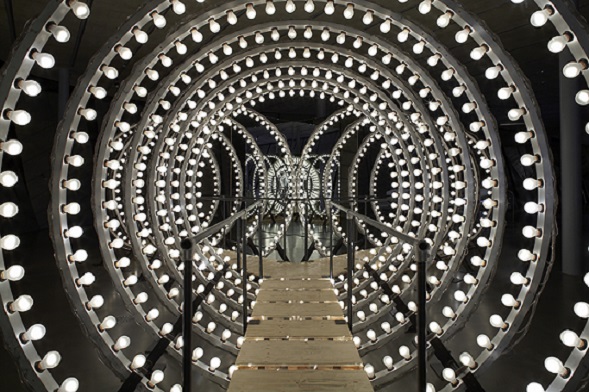Sentimento mistico e melanconia: due casi di visione aspettuale
DOI:
https://doi.org/10.13130/2240-9599/10365Abstract
The aim of this paper is to propose a comparison between the mystical feeling, as it is defined by Ludwig Wittgenstein in the Tractatus logico-philosophicus, and the psycho-pathological state of melancholy, posed in relation with mourning by Sigmund Freud. The comparison will depart from the radical dissatisfaction that seems to be a distinctive characteristic of both phenomena. According to Wittgenstein in fact the drive to mystical feeling rises from the deep dissatisfaction regarding the explanations given by science, which is incapable of producing any answer to the «problem of life». In a similar way, Slavoj Žižek underlines that melancholy is a form of «disappointment at all positive, observable objects, none of which can satisfy our desire». In this perspective, I will check the similarities and differences between mystical feeling and melancholy and I will put in relation the double profile of this latter (manic depression) with the Wittgensteinian theme of aspect seeing («seeing-as»).
Downloads
Riferimenti bibliografici
Aristotele, Metafisica, a cura di G. Reale, Milano, Bompiani, 2004.
Badiou A., 2008: L’antiphilosophie de Wittgenstein, Caen, Nous, 2008.
Bosteels B., 2008: Radical Antiphilosophy, «Filozosfki vestnik» XXIX, 2, pp. 155-187.
Certeau de M., 1982: La fable mystique. (XVIᵉ-XVIIᵉ siècle), tome I, Paris, Gallimard, 1982 (tr. it. Fabula Mistica. XVI-XVII secolo, vol. I, Milano, Jaca Book, 2008).
Cimatti F., 2016: Una “ferocia psicotica”. Wittgenstein e Lacan, «Il cannocchiale. Rivista di studi filosofici» XL, 1, pp. 29-57.
Freud S., 1917: Trauer und Melancholie, «Internationale Zeitschrift für ärztliche Psychoanalyse» 4, pp. 288-301 (tr. it. Lutto e melanconia, in Opere complete, vol. VIII, Torino, Bollati, 1976, pp. 102-118).
Heidegger M., 1957: Der Satz vom Grund, Pfullingen, Neske (tr. it. Il principio di ragione, Milano, Adelphi, 1991).
Lacan J., 1991: Le seminaire. Livre XVII. L’envers de la psychanalyse, Paris, Seuil (tr. it. Il seminario. Libro XVII. Il rovescio della psicoanalisi, Torino, Einaudi, 2001).
Mazzeo M., 2012: Melanconia e rivoluzione. Antropologia di una passione perduta, Roma, Editori Internazionali Riuniti, 2012.
Oliva S., 2017a: Domande scientifiche e pulsione mistica. Wittgenstein, Freud e Lacan al di là del principio di piacere, «Studi di estetica» 1, pp. 97-110.
Oliva S., 2017b: Dal nonsenso al gesto: Wittgenstein e il giudizio di valore, «Rivista di estetica» 65, pp. 143-54.
Palombi F., 2009: Jacques Lacan, Roma, Carocci, 2009.
Soulez A., 2016: Détrôner l’Être. Wittgenstein antiphilosophe? (en réponse à Alain Badiou), Limoges, Lambert-Lucas, 2016.
Žižek S., 2000: Melancholy and the Act, «Critical Inquiry» 26, pp. 657-681.
Žižek S., 2006: How to read Lacan, London, Granta publications, 2006 (tr. it. Come leggere Lacan, Torino, Bollati Boringhieri, 2009).
Virno P., 2010: E così via all’infinito. Logica e antropologia, Torino, Bollati Boringhieri, 2010.
Wittgenstein L., 1922: Tractatus Logico-Philosophicus, London, Kegan, Trench, Trubner (tr. it. Tractatus Logico-Philosophicus e Quaderni 1914-1916, Torino, Einaudi, 1995).
Wittgenstein L., 1953: Philosophische Untersuchungen, Oxford, Blackwell (tr. it. Ricerche filosofiche, Torino, Einaudi, 1995)
Wittgenstein L., 1961: Notebooks 1914-1916, Oxford, Blackwell (tr. it. Quaderni 1914-1916, in Tractatus logico-philosophicus e Quaderni 1914-1916, Torino, Einaudi, 1995).
Wittgenstein L., 1965: A Lecture on Ethics”, «Philosophical Review» 74, pp. 3-26 (tr. it. Conferenza sull’etica, Lezioni e conversazioni su etica, estetica, psicologia e credenza religiosa, Milano, Adelphi, 1992, pp. 5-18).
Wittgenstein L., 1969: Über Gewissheit, Oxford, Blackwell 1969 (tr. it. Della certezza, Torino, Einaudi, 1978).
Wittgenstein L., 1977: Vermischte Bemerkungen, Frankfurt am Main, Suhrkamp 1977 (tr. it. Pensieri diversi, Milano, Adelphi, 1980).





